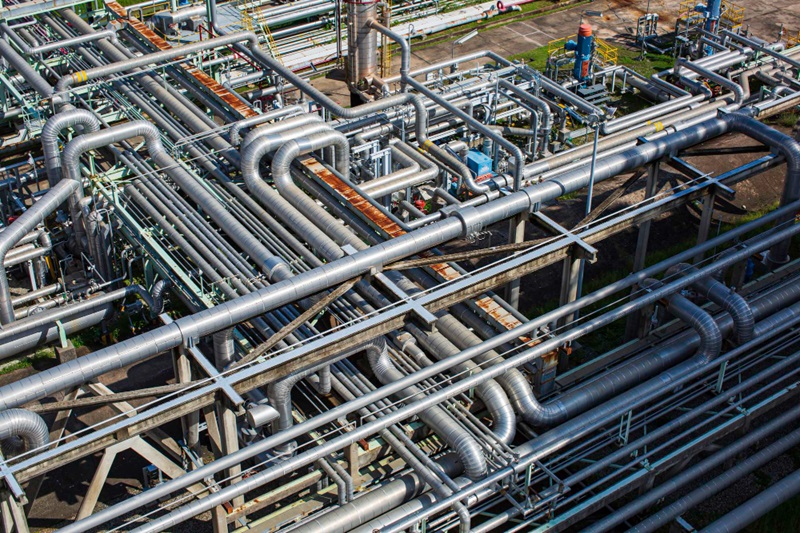 In the world of industry, a vital yet often overlooked component exists – the flowline. These unassuming conduits form the lifeline of a piping company, playing a role far more significant than meets the eye. Flowlines, the unsung heroes of material transportation, quietly facilitate the movement of raw materials, fluids, gases and solids within industrial facilities. They are the arteries of production, connecting extraction points to processing units.
In the world of industry, a vital yet often overlooked component exists – the flowline. These unassuming conduits form the lifeline of a piping company, playing a role far more significant than meets the eye. Flowlines, the unsung heroes of material transportation, quietly facilitate the movement of raw materials, fluids, gases and solids within industrial facilities. They are the arteries of production, connecting extraction points to processing units.
But what exactly are flowlines, and how do they differ from their more widely recognized counterparts, pipelines? In this article, we unravel the mysteries of flowlines, understanding their purpose and delving into the subtleties that set them apart from pipelines. So, let’s explore the world of flowlines, where simplicity meets industrial prowess, all while keeping in mind the needs of an industrial piping company.
Objectives of Flowlines by Industrial Piping Company
Flowlines are generally the first point of contact for raw materials and products within an industrial setup. They function as the crucial connectors between the source of raw materials and initial processing units, such as separators or storage tanks. They transport fluids, gases or solids from wells, mines or other collection points. Unlike the vast network of pipes that may come to mind when considering industrial settings, flowlines are often more localized and specific to a task.
For an industrial piping company, flowlines are not merely about transportation. They are intricately designed to handle varying pressures, temperatures and chemical compositions. Their configurations may include auxiliary equipment such as manifolds, choke valves and multilateral junctions to control flow rates or redirect materials. In essence, flowlines are the tactical executioners of an industrial piping strategy, ensuring that materials reach their destinations safely and efficiently.
Flowlines vs. Pipelines: Navigating the Subtleties
To the untrained eye, flowlines and pipelines may appear the same. However, understanding their differences is crucial for any experienced industrial piping company. While both serve the overarching purpose of transporting materials, their functions, features and locations can differ.
- Functionality: Flowlines are designed for short-range material transport, usually within a particular facility or between close-knit stations. On the other hand, pipelines are built for the long haul, sometimes crossing borders to deliver materials over large distances.
- Design Complexity: Flowlines often involve intricate design to handle variables like pressure and temperature. Pipelines are generally more straightforward in design, focusing primarily on durability and capacity.
- Regulations: Flowlines may not be as heavily regulated as pipelines because they are usually confined within an industrial site, making them the responsibility of the industrial piping company operating the facility. In contrast, due to their broader operational scope, pipelines often have to comply with many local, state and federal laws.
Three Specific Ways Flowlines and Pipelines Differ
To further distinguish flowlines from pipelines, consider these unique characteristics:
- Material Composition: Flowlines may transport a combination of gas, liquid and solid materials, especially when dealing with raw substances. Pipelines usually transport a single type of material, which is generally already somewhat processed.
- Mobility: Flowlines can often be adjusted or reconfigured quickly to meet changing demands or circumstances, making them highly adaptable assets for a reputable industrial piping company. Pipelines are generally permanent installations requiring significant effort and time for any modifications.
- Scope: Flowlines usually operate as part of a larger system, such as a production or treatment facility. They are integral to the primary function of that system. On the other hand, pipelines act as standalone transport mechanisms, connecting different systems or facilities.
Discover the International Pipe Advantage
At International Pipe, we’re more than just a supplier – we’re your partners in success. When it comes to dependable industrial flow solutions, we’ve got you covered. With our unwavering commitment to quality and expertise, we offer more than pipes; we deliver peace of mind. Don’t miss out on the opportunity to partner with the best industrial piping company. Contact us now for a brighter, more efficient industrial future.
